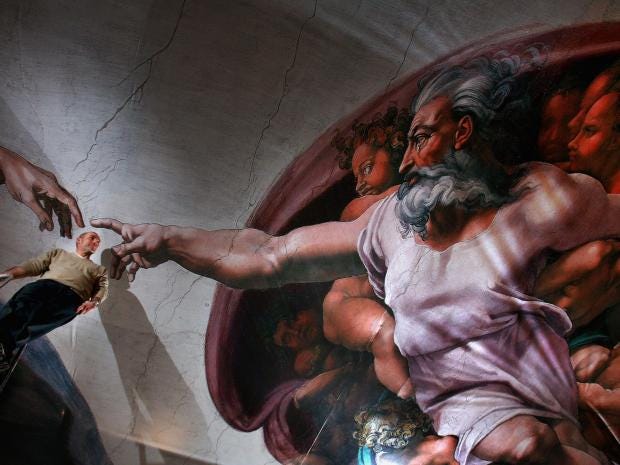A recent scientific paper on the movement of the human hand has faced strong criticism for referring to a 'Creator' throughout.
The paper, titled: 'Biomechanical characteristics of hand coordination in grasping activities of daily living' was written by a team of four researchers, three from Huazhong University in China, and one from Worcester Polytechnic Institute in Massachusetts.
Published in the PLOS ONE journal, the fairly conventional study looked at the mechanics of how we grasp things, and involved the measurement of the hand movements of 30 participants.
However, members of the scientific community have demanded the paper be retracted, for its several perceived references to the pseudoscientific theory of intelligent design and a possibly divine 'Creator'.
In the opening sentences of the study, it claims the link between muscles and hand movements is the product of "proper design by the Creator."
Later, it says human hand coordination "should indicate the mystery of the Creator's invention," and concludes by again claiming the mechanical architecture of the hand is the result of "proper design by the Creator."
Naturally, the multiple references to intelligent design in a reputable journal like PLOS ONE have stoked anger in the scientific community, and many people, including researchers who work as editors for the publication, are now calling for it to be retracted.
The paper's authors appeared to acknowledge their mistakes in the comments section, saying the references to the 'Creator' were down to translation errors rather than a belief in intelligent design.
Other comments on the paper called its publication "unacceptable", and criticised the "sloppy job" done by the reviewers and editors. Some scientists said the journal should be boycotted unless amends are made.
Commenting below the study, the journal's staff apologised that the language referring to a 'Creator' was not addressed during the paper's evaluation.
They also said they were "looking into" the concerns raised, and would "take steps" to correct the published article.
Update: The journal has now announced the paper will be retracted.
Commenting on the website, it wrote: “The PLOS ONE editors have followed up on the concerns raised about this publication. We have completed an evaluation of the history of the submission and received advice from two experts in our editorial board. Our internal review and the advice we have received have confirmed the concerns about the article and revealed that the peer review process did not adequately evaluate several aspects of the work.”
“In light of the concerns identified, the PLOS ONE editors have decided to retract the article, the retraction is being processed and will be posted as soon as possible. We apologize for the errors and oversight leading to the publication of this paper.”









